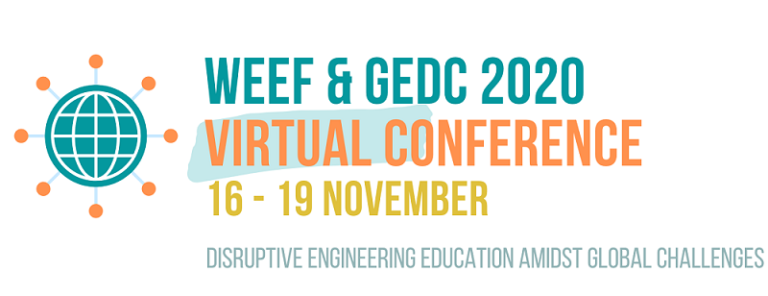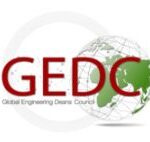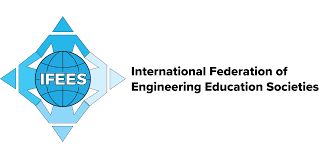
Workshops
1) Session – Crisis Online Learning Workshop
Topic – Actionable Insights from Engineering Educators During Emergency Remote Teaching
Overview:
This workshop will consist of an interactive presentation of an ongoing research effort into the effect of the transition to emergency remote (online) teaching (ERT) during the pandemic. The research, conducted by the South African Society for Engineering Education and Stellenbosch University, seeks insights into the conditions, challenges and successes of the transition from engineering (and related) educators and postgraduate students at different institutions in different contexts.
Workshop participants will be invited to compare their own perceptions of online teaching in particular learning scenarios into their own context in an interactive format. The facilitators will then guide the participants through the framework and methodology used to productively interpret the qualitative data collected. The workshop will culminate with a comprehensive discussion on translating the analysed data into areas for potential action.
Presenters – Karin Wolff (Stellenbosch University) and Johnson Carroll (University of Johannesburg)
Target Audience : All engineering education related stakeholders (management, deans, lecturers, students, learning support staff)
cv
2) Session – Mental Wellbeing Workshop
Topic – Exhaustion and Authenticity in your career as an academic staff member
Overview:
Although wellbeing is a topic of much discussion within Higher Education, it is often seen as elusive and can be even harder to remain aware of your own wellbeing during the busiest times. This workshop facilitates participants’ explorations of what working in Engineering Education Research means for them and how they can embed active wellbeing practices into their work life. Beginning by exploring two key factors in maintaining healthy levels of wellbeing, authenticity and exhaustion, participants are invited to reflect on their own experiences using this framing of wellbeing via Action Learning Sets and culminating in each participant devising their own strategies to ensure a healthy balance of wellbeing through a pledge they make to themselves. To embed sustainability into this practice of self-reflection and awareness of how they continue to embody their pledge in the future, the second part of the workshop focuses on developing simple personalised practical actions in support of this.
Presenters – Lelanie Smith (University of Pretoria) and Rebecca Broadbent (Aston University, UK)
Target Audience : All levels of faculty who are interested in exploring their awareness of their own wellbeing or exploring ways in which to help members of their team become aware of their wellbeing and master practices to maintain awareness.
cv
3) Session – Ethics in Engineering Education Workshop
Topic – Workshop on teaching ethics within engineering
Overview:
Session participants can expect to gain :
- the opportunity to engage with the different facets of teaching ethics including ethics as a skill, concept, knowledge, value and attitude
- the exploration of the difference between ethics as an individual and as a communal practice
- experience of online activities for the teaching of ethics to engineering students
- practical hands-on engagement with research ethics training and
- engagement with strategies to counter corruption in the public service
Ethics within engineering can be seen as an individual practice and, as such, falls outside of professional discourse and processes. This workshop will reposition ethics as central to the practice of engineering and will engage with three key areas relating to research, the public sector and professional identity. Participants will go home with practical ideas for enhancing their own teaching of ethics to engineers. Participants will be engaged as students and teachers and expected to participate in and contribute to practical activities including scenarios.
Presenters – Alison Gwynne-Evans, Marianne Camerer, Lyn Horn, Paula Saner (University of Cape Town) and Manimagalay Chetty (Durban University of Technology)
Target Audience : All engineering education related stakeholders (management, deans, lecturers, learning support staff).
cv
4) Session – Africa Engineering Education Research Network (EERN) Workshop
Topic – Africa EER networking workshop
Overview:
EER is not well represented in Africa and although there is a growing interest to support African countries, Africa lacks representation in the global EER community. Many African Universities operate with limited resources and unique restrictions which leads to various innovative educational projects but they remain unpublished. This short workshop will act as a community building engagement as we move towards a sustainable EER network in Africa and to increase African representation globally in this field and showcase the contribution of Africa to EER. It will be informally organised to give scholars and practitioners the opportunity to connect, share experiences and their interests or potential links to EER.
Presenters – Lelanie Smith (University of Pretoria), Esther Matemba (Curtin University), Aida Guerra (Aalborg University) and Mike Klassen (University of Toronto)
Target Audience : Even though the focus is on African countries and building an EER community, anyone who has an interest in networking and collaborating is more than welcome.



